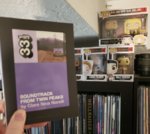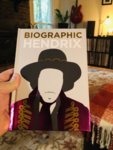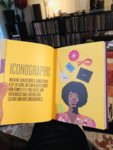oh certainly this is valid; it's often said that the writing tells you more about the author than the subject of the writing. The best books certainly do both, and the ones I dislike the most are the ones that lean into one aspect at the expense of the other (e.g. Jonathen Lethem's "The Talking Heads: Fear of Music" he starts out by saying he wasn't going to interview the band or anyone and wasn't going to look up any information and was going to disconnect his computer from the internet until he was done writing it. So uh good luck on any non-lethem perspectives or facts and information that lethem himself had not already committed to memory. The OK Computer book's analysis on song length is equally maddening for a similar reason: there's a huge disconnect between what readers get and what they want to get. YMMV, I did not enjoy them, but I can see why someone else might.)


